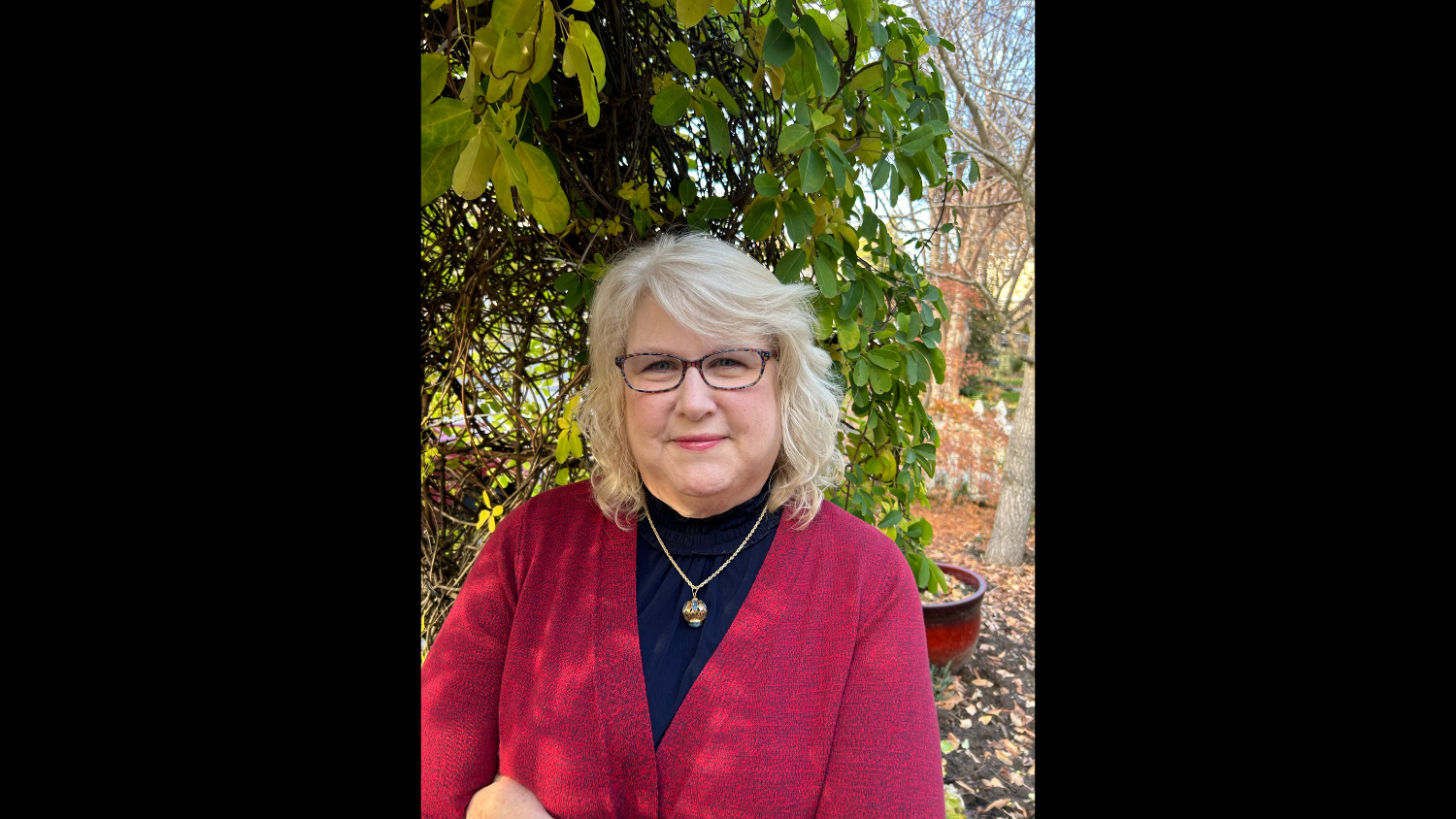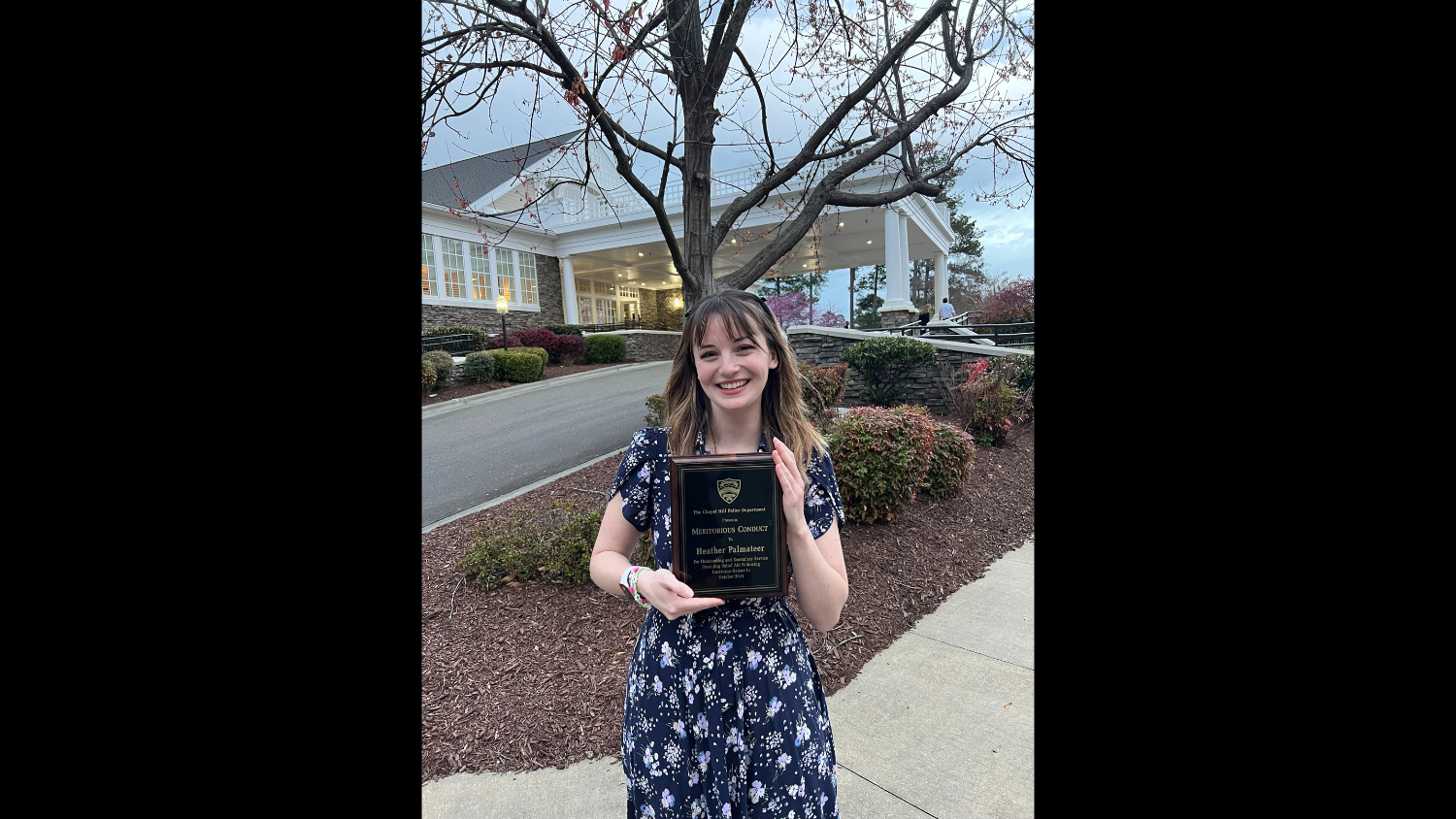Social Work Alumna Highlight: Sgt. Renae Lockhart, MSW
(Featured image, Sgt, Lockhart (right) with MSW intern at the Raleigh Police Department – North District)
Sgt. Renae Lockhart, MSW, a graduate of the NC State Department of Social Work BSW (2002) and MSW (2011) programs was interviewed for our alumni highlight. Lockhart serves as a police officer with the Raleigh Police Department as well as an adjunct professor with the Department of Social Work. She was featured as the 2013 NASW NC member spotlight, article can be found here. Lockhart is also the sole recipient of the Raleigh Police Department’s 2016 Award for Merit which was awarded for her tireless efforts to create the Trauma Counselor position within the police department.
Outside of being an NC State alumna, what other things are you involved with professionally?
I have been a police officer for 14 years. I am currently a police sergeant, meaning, a supervisor of a squad of patrol officers. I also teach police personnel proper response to domestic violence calls and how to handle situations with special populations. Some may think that law enforcement training focuses solely on suspects and/or suspect behavior but there are training’s that encompass social work contextual elements.
How did you decide to become a police officer and decide to work with special populations?
While in the BSW program, I knew that I wanted to pursue a career within the criminal justice system. Police work appealed to me because it was a challenge. Interestingly enough, I use what I learned at NC State when responding to police calls. Initially, I loved entering homes and talking to families. I enjoyed being able to assist people in crisis, while in their environment. Later, I moved to the domestic violence unit. I was assigned to that unit for six years. My position involved following up on domestic violence involving intimate partners and family related incidents. The hope was to intervene prior to physical violence or immediately thereafter to assist individuals and their families.
What do you wish people knew about your position?
Police work is much more than what it seems. Social work elements are in law enforcement.
What influenced your career path?
I was planning on going into probation and parole but I decided that I wanted to work with individuals prior to the probation and parole process. I decided to enter into law enforcement because I felt there would be more immediate contact.
Do you have any advice for those wanting to become a social worker?
Be open minded, surround yourself with people who think differently. Social workers tend to hang out with social workers and that is great but seek out other professionals. Network with them and have them assist you with what you do.
What would you like for people to know about you and your position?
I speak ”cop” and I speak “social worker”. I was able to create a position to assist citizens that have been traumatized by incidents involving law enforcement response. These citizens are not direct victims of crime but essentially have to cope with witnessing a life changing event. This position began with an NC State master-level social work intern that I supervised. We were able to show that there was a need for the position. We applied and received a grant to support the position and have moved forward from there.
What changes do you foresee for the field in the next five years?
I anticipate that there will be a need for more social workers employed within police departments serving as liaisons to connect the community to services.
What do you do when you are not working?
I have two small children, so I try to spend as much time as I can with my husband and family. I was a student athlete during undergrad , and nowadays I keep up with my physical training by running, It is a great stress reliever and an excellent way to stay energized.
- Categories:


